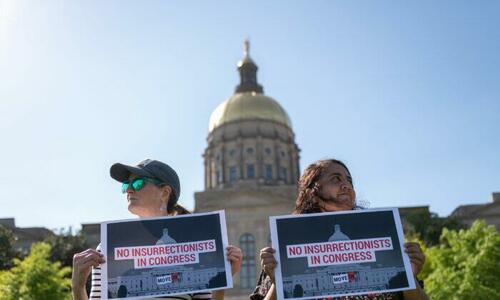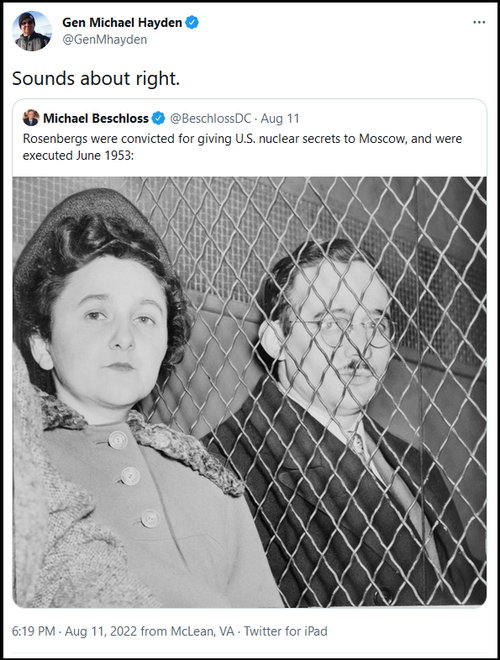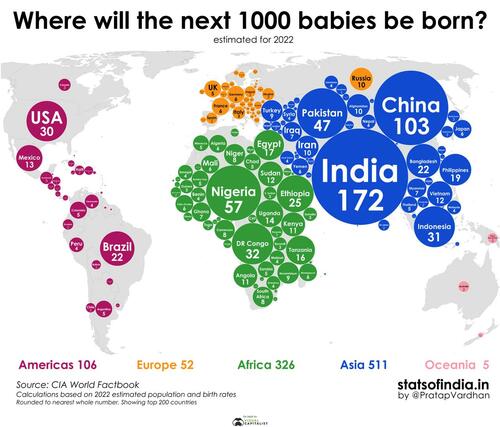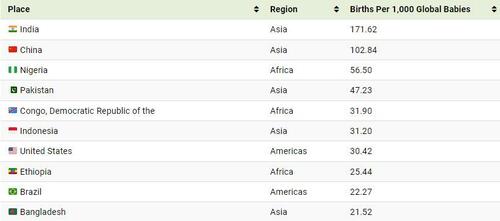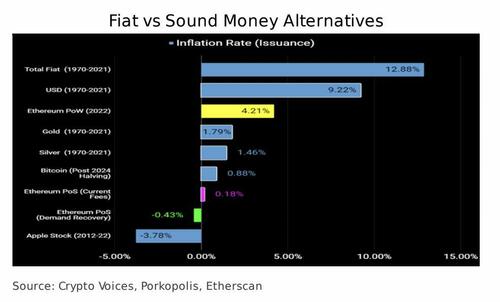In Woke, Inc.: Inside Corporate America’s Social Justice Scam, lawyer and businessman Vivek Ramaswamy talks about his internship at Goldman Sachs—an internship that he starts by saying was coveted because Goldman was “the most elite financial institution in America.” “You didn’t join Goldman as a summer intern for the $1,500-per-week paycheck, though that wasn’t bad. Or for the possibility of a $65,000-a-year full-time offer for a 100-plus-hour-a-week job. You did it for the privilege of saying: ‘I work at Goldman Sachs.'” But he soured on Goldman, in part because of things like the following incident:
The hallmark event at Goldman Sachs the summer I worked there wasn’t a poker tournament on a lavish boat cruise followed by a debauched night of clubbing, as it had been at the more edgy firm where I’d worked the prior summer. Rather, it was “service day”—a day that involved dressing up in a T-shirt and shorts and then dedicating time to serving the community. Back in 2006, that involved planting trees in a garden in Harlem. The co-head of the group at the time was supposed to lead the way.
I welcomed the prospect of a full day spent at a park away from Goldman’s cloistered offices. Yet when I showed up at the park in Harlem, very few of my colleagues seemed interested in … well, planting trees. The full-time analysts shared office gossip with the summer analysts. The vice presidents one-upped each other with war stories about investment deals. And, of course, the head of the group was nowhere to be found.
It was supposed to be an all-day activity, yet after an hour I noticed that very little service had actually been performed. As if on cue, the co-head of the group showed up an hour late—wearing a slim-fit suit and a pair of Gucci boots. The chatter among the rest of the team died down, as we awaited what he had to say.
“Alright, guys,” he said with a somber expression, as though he were going to discipline the team. A moment of tension hung in the air. And then he broke the ice: “Let’s take some pictures and get out of here!” The entire group burst into laughter. Within minutes we had vacated the premises. No trees had been planted. Within a half hour, the entire group was seated comfortably at a nearby bar that was well prepared for our arrival—pitchers of beer ready on the tables and all.
I turned to one of the younger associates sitting next to me at the bar. I remarked that if we wanted to have a “social day,” then we should’ve just called it that instead of “service day.”
He laughed and demurred: “Look, just do what the boss says.” Then he quipped back: “You ever heard of the Golden Rule?”
“Treat others like you want to be treated,” I replied.
“Wrong,” he said. “He who has the gold makes the rules.”
I called it “the Goldman Rule.” I learned something valuable that summer after all.
And Ramaswamy then returns to use this phrase elsewhere in the book.
Of course, “He who has the gold makes the rules” is a familiar line, often labeled “the Golden Rule,” as a play on the other, quite different, Golden Rule. Ramaswamy labeled it “the Goldman Rule,” likewise as a play on Golden Rule.
Then, this past Thursday, the Ramaswamy formulation appeared in Judge James Ho’s concurrence in denial of en banc in Sambrano v. United Airlines. The specific legal dispute at this stage of the case is, as so many legal disputes, about procedural questions (such as when preliminary injunctions are available in religious discrimination cases, when opinions should be labeled precedential, and when courts should rehear cases en banc), but the underlying substantive question relates to United Airlines’ vaccination mandate and its absence of religious exemptions. Here’s an excerpt from Judge Ho’s opinion:
If the dissent is right, and this case is indeed pathbreaking, it’s important to understand why. What’s new here is not the law, but the behavior of industry. Historically, corporations typically focus on increasing shareholder value—not on imposing certain cultural values on others. But that is rapidly changing.
I began by imagining a hypothetical employer who doesn’t care how productive an employee you might be—he insists that you abandon certain religious beliefs he finds offensive, whether it’s abortion, marriage, sexuality, gender, or something else. But here’s the thing: What was once hypothetical is now rapidly becoming reality. Examples of this abound. [Citations omitted. -EV]
So this case may be the first, but I suspect it will not be the last.
[* * *]
A prominent commentator and former CEO recently expressed “deep[ ] concern[ ]” about this “new model of capitalism,” calling it “a dangerous expansion of corporate power that threatens to subvert American democracy.” Vivek Ramaswamy, Woke, Inc.: Inside Corporate America’s Social Justice Scam 18 (2021). As he explained, “America was founded on the idea that we make our most important value judgments through our democratic process, where each citizen’s voice is weighted equally, rather than by a small group of elites in private. Debates about our social values belong in the civic sphere, not in the corner offices of corporate America.” “[T]here’s a difference between speaking up as a citizen and using your company’s market power to foist your views onto society while avoiding the rigors of public debate in our democracy.” “When companies use their market power to make moral rules, they effectively prevent … other citizens from having the same say in our democracy.”
In sum, “it’s the Goldman Rule in action. The guys with the gold get to make the rules.” Id. at 18.
Not surprisingly, many Americans bemoan the impact that this new form of capitalism is starting to have on our Nation’s culture. Cf. Oliver v. Arnold, 19 F.4th 843, 843–44, 853–54 (5th Cir. 2021) (Ho, J., concurring in denial of rehearing en banc); Villarreal v. City of Laredo, _ F.4th _, _–_ (5th Cir. 2022) (Ho, J., concurring).
My point today is less ambitious: We know what this new corporate trend is doing to employees. It’s violating the religious convictions of workers across the country. And in cases like this, the injuries are irreparable.
So here’s the controversy: Some are claiming that referring to this as the “Goldman Rule” is “antisemitic” (on the theory that “Doesn’t really matter if he meant to be antisemitic. It is, and there’s a reason this kind of rhetoric is bubbling up now.”) See also here and here (“completely internalized antisemitism”) and here.
I take it the theory is that the label “Goldman Rule” is an attempt to condemn Goldman as a Jewish-founded company, or presumably to tie the universal principle (“The guys with the gold get to make the rules”) specifically to Jews—rather than, as the passage from the opinion suggests, to condemn certain behavior by large corporations generally (such as the not-particularly-Jewish-linked United Airlines).
This strikes me as quite mistaken. One great consequence of America’s longstanding relative openness to Jews has been that many Jews have thrived and reached prominence—in business, in politics, and elsewhere. When you become prominent enough, things become named after you: businesses, statutes, sayings, and more.
Some of them are positive, for instance using Einstein as the paragon of genius (though even that might be used sarcastically and negatively). Some of them are neutral, or perhaps negative but in a way that doesn’t reflect on the author, for instance the other Goldman Rule, named after screenwriter William Goldman: “Nobody knows anything” when it comes to predicting which movies will be successful. Some of them are negative in a way that’s critical of their namesakes, such as Ramaswamy’s Goldman Rule. Some of them are purely descriptive but may be loathed by those who disapprove of their substance. (There’s a gun control statute, for instance, called the Lautenberg Amendment, after Senator Frank Lautenberg.)
More broadly, some will criticize prominent people and institutions that happen to be Jewish, much as they may criticize prominent people and institutions that happen to belong to other groups. That will include people and institutions that are associated with businesses that for various reasons have been disproportionately Jewish (including, for instance, finance), precisely because lots of Jews have become prominent in those fields and there are thus more Jewish-linked institutions in those fields that merit comment, whether negative, positive, or neutral. Recall Ramaswamy’s story: He went to Goldman precisely because it was seen as so “elite.”
And of course such institutions shouldn’t be immune from criticism any more than institutions associated with other groups. It’s just as legitimate to criticize Mark Zuckerberg as Jack Dorsey, and just as legitimate to criticize Goldman Sachs as any other business (or as some people back in the day criticized the Rockefellers or J.P. Morgan or the like). And unsurprisingly Goldman Sachs is routinely harshly criticized, at least as often from the Left (see, e.g., this Bernie Sanders anti-Goldman-Sachs ad and many of these articles in The Nation, to choose just one Left publication) as from the Right. Ramaswamy’s “Goldman Rule” is pretty tame compared to some such criticisms. Will some anti-Semite listeners or readers endorse such criticisms because of their own preconceived anti-Semitic notions? Doubtless so. But the stupid reactions of some stupid people don’t make it improper for us to engage in legitimate criticism (though of course one can always disagree with that criticism on the merits).
Now to be sure, someone who hadn’t read Ramaswamy’s story might wonder, “Why is Ramaswamy calling it the ‘Goldman Rule’?” But thankfully we live in an era where all human knowledge is on a small box in each of our pockets. A few keystrokes will let you search for “ramaswamy ‘goldman rule,'” and there you have the answer: Ramaswamy thought Goldman was elite, decided his idol had feet of clay, and then used the coincidental similarity of “Goldman” and “Golden” as a way of criticizing what he saw as overstepping by business generally (and not, by the way, just financial businesses, which are more associated with Jews than corporate America generally). Judge Ho quoted part of Ramaswamy’s criticism, in the process quoting Ramaswamy’s label.
Seems quite reasonable to me (though, again, one can argue whether that criticism is indeed apt in this situation). There really is real anti-Semitism out there, regrettably. This isn’t it.
The post Ramaswamy, Ho, and Goldman appeared first on Reason.com.
from Latest https://ift.tt/s72UR3Y
via IFTTT

